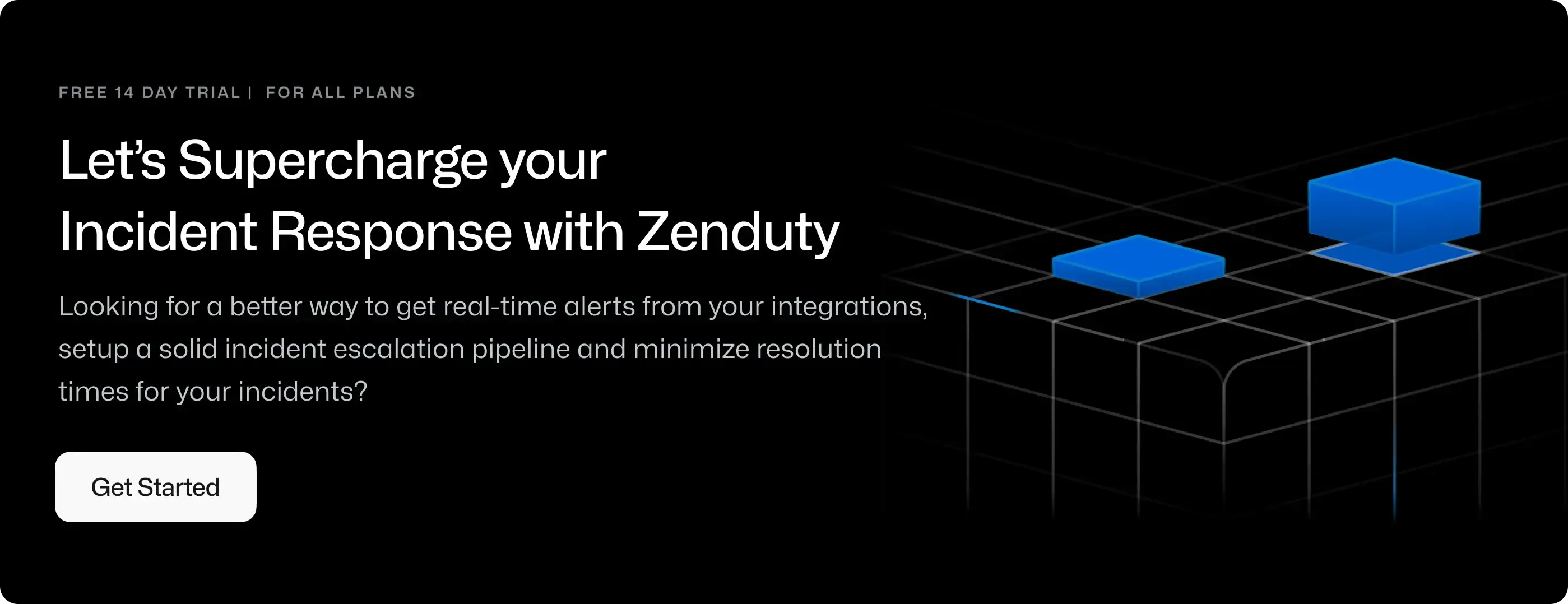Github Integration Guide
GitHub facilitates collaboration among a global community of developers, fostering the discovery, sharing, and enhancement of software projects.
Through the integration with Zenduty, users can get notifications about different events; like when new code is added, pull requests are made, or comments are added to issues. When new issues are created, or when there are updates like code pushes, pull requests, or comments, Zenduty will automatically create an incident.
You can customize how you handle specific GitHub alerts by using Alert Rules. With Alert Rules, you can send alerts to specific users, teams, or escalation policies, set up suppression rules, automatically add notes, responders, and incident tasks. Check out more about Alert Rules.
Note: We only support these Webhook event types - Push, Issues, Issue Comments, Pull Request, Release, and Workflow Run.
To connect GitHub with Zenduty, simply follow these steps:
Configuration Steps on Zenduty
-
Head to Teams in Zenduty and choose the team where you want to add GitHub integration.
-
Now, move to Services, and select the service you're interested in.
-
In Integrations, for Incoming Integrations (Alert Sources), hit + Add Integration, and choose Github from the list.
-
Give a name and description for this integration. Choose the type of event you want incidents to be created for and set the default urgency level.
-
Click on Add Integration; You will be redirected to the Configure section for that integration. Copy the Webhook URL displayed in the code block and note this down, we will be needing it later.
Configuration Steps on Github
-
Sign in to your Github account and go to the Repository you want to get alerts from.
-
At the top, click on Settings (you need to be the owner of the repository).
-
From the menu on the left, click on Webhooks. Then click on Add Webhook

-
Paste the Webhook URL you copied earlier into the Payload URL box.
-
Choose application/json as the Content Type.
-
Under Which events should trigger this webhook?, select Let me pick individual events.
-
Now, choose the events you want to track in Zenduty. You can select from Pushes, Issues, Pull Requests, Releases, and Workflow Jobs.


-
Click on Add Webhook to Save.
Note: Once the hook is created successfully, Github sends a ping payload to Zenduty. Please note that this will fail with HTTP Response code 400 since we do not support ping payload. Rest assured, the integration is completed successfully.

